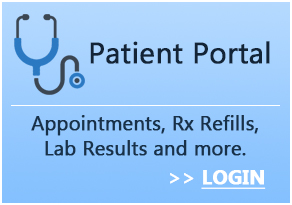Your period is more than just a monthly event, it’s a key indicator of your overall health. Changes in your cycle can reveal important clues about hormone balance, nutrient status, stress levels, and even chronic conditions you might not know you have. Getting “clued in” to your menstrual health can help you recognize early warning signs and take proactive steps to protect your well-being. At Empire OBGYN, we believe in educating women on this vital part of their health story. We’re here to help you decode your menstrual cycle so you’re … [Read more...] about Menstrual Health: What Your Period Can Reveal About Your Overall Wellness
Blog
PCOS Management: Lifestyle Tips That Actually Work
Polycystic Ovary Syndrome (PCOS) can feel like a mystery, and managing symptoms day-to-day often feels like a full-time job. But here’s the truth: PCOS management doesn’t have to mean super restrictive diets, endless supplements, or navigating it all on your own. At Empire OBGYN, we’re committed to helping women in Buffalo and beyond find sustainable, empowering ways to manage PCOS naturally. Whether you’re newly diagnosed or looking to take control of persistent symptoms, this guide offers lifestyle tips that actually work becuase they’re … [Read more...] about PCOS Management: Lifestyle Tips That Actually Work
Natural Remedies for Menopause Symptom Relief
It's 3 AM, and you're drenched in sweat, wondering if this is your new normal. You're not alone because 85% of women experience disruptive menopausal symptoms often dismissed as "just part of aging." But what if natural remedies offered real menopause management without the side effects of hormone therapy? I've spent years guiding women through this transition holistically, and I'm about to share proven secrets. What if the most powerful medicine for your menopause symptoms has been in your kitchen all along? Let's find out together in this … [Read more...] about Natural Remedies for Menopause Symptom Relief








